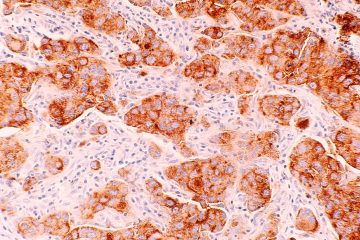
Researchers from UBC and the BC Cancer Research Institute (BCCRI) have uncovered new insights into how a dangerous subset of breast and ovarian cancers evolve — insights that could help us better understand how to treat these aggressive cancers.
By sequencing the genomes of individual cells from the biopsies of 158 BC Cancer patients, the researchers were able to observe the processes of evolution as it occurred within individual cells.

Dr. Sam Aparicio
The team, led by UBC pathology and laboratory medicine professor Dr. Samuel Aparicio, sequenced more than 35,000 single-cell genomes from tumour samples. Patient biopsies were transplanted into animal models, allowing researchers to observe the evolution of the transplanted tumours.
“Sequencing the individual genomes of the tumour cells allows critical differences to be studied. The genetic differences between the cells of a tumour can lead to differences in cancer progression and, ultimately, patient responses to therapy,” says Dr. Ciara O’Flanagan, a research associate at the Aparicio Lab and one of the lead authors of the study.
By examining the genomes of individual cells, researchers were able to identify important new mutational processes that were found to occur more frequently in particularly deadly subsets of breast and ovarian cancers. These processes contribute to instability within the genomes of cells, including the accumulation of several copies of genes and the gradual gain or loss of regions of DNA. These striking mutational processes lend the genomes of the cells a ‘serrated’ appearance. This behaviour has never been observed before in patient samples.

Dr. Ciara O’Flanagan
“These ‘serrated’ regions are especially prevalent in a subset of ovarian and breast cancers associated with poor survival,” says Dr. O’Flanagan.
“This discovery has important implications for understanding the evolution and treatment of these aggressive cancers.”
“By catching structural mutations of the genome that underpin cancer evolution as they occur at the time of cell division, we have shed light on how resistance to cancer treatment develops” says Dr. Aparicio, who is also a distinguished scientist, department head of Molecular Oncology and breast cancer chair at BCCRI.
The study, which was conducted at the Aparicio Lab at BCCRI in collaboration with researchers at Memorial Sloan Kettering Cancer Centre, was recently published in Nature.
This research was made possible in part through generous donor support from the BC Cancer Foundation.
A version of this story originally appeared on the BC Cancer website.